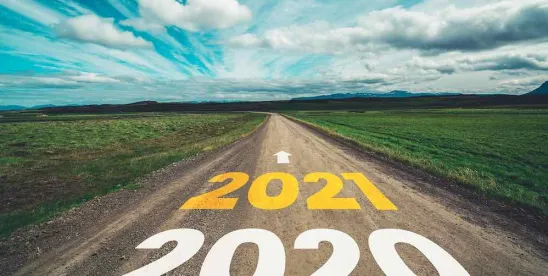Four months after the expiration of the $659 billion forgivable loan relief program established by the CARES Act, the federal government has disbursed approximately $5.2 million Paycheck Protection Program (PPP) loans.1
As discussed in an earlier alert,2 the policy considerations underlying PPP loans make them inherently vulnerable to fraud. To facilitate rapid delivery of funds to Americans in need during recent economic shutdowns, Congress and the U.S. Small Business Administration (SBA) imposed a markedly low bar for PPP loan qualification, minimally requiring that applicants self-certify the loan’s necessity and that the funds would be properly allocated to certain expenses falling within the PPP program. Ordinary and conventional safeguards accompanying federal loan underwriting were put aside, and vetting and eligibility checks were postponed.
Unsurprisingly, reports of fraud are now widespread, and additional misconduct will be exposed when the deadline for initial repayment (or seeking loan forgiveness) is reached in the second half of next year. Looking ahead to 2021, we can expect the Biden administration to build upon recent civil and criminal enforcement of COVID-19-related fraud, including potential qui tam and government initiated False Claims Act litigation, and dedicate meaningful resources to pursuing individuals and entities suspected of submitting or otherwise participating in dubious, if not outright fraudulent, PPP loan applications. Here is what lies ahead:
The Current Landscape
Increased government scrutiny and complaints from the public in Q4 2020 foreshadow a potential onslaught of enforcement actions in the coming year:
- The SBA fraud hotline has received more than 100,000 complaints this year (a stark contrast to the 742 complaints received in 2019).
- The FBI’s Internet Crime Complaint Center has processed more than 26,000 complaints specifically concerning COVID-19 and PPP-related fraud.
- The House Select Subcommittee on the Coronavirus Crisis has identified more than $4 billion in questionable loans.
- The U.S. Department of Justice (DOJ) has filed criminal charges against more than 80 individuals for suspected fraud in connection with applications for CARES Act relief, implicating nearly $127 million of the funding provided to businesses.
- In addition to numerous trading suspensions, the SEC has brought seven COVID-19-related fraud actions and has opened more than 150 COVID-19-related investigations and inquiries.
FBI Director Signals Focus on Investigationg Misuse of CARES Act Funds
FBI Director Christopher Wray recently made clear the FBI’s prerogatives in light of “emerging financial crime trends” centered on CARES Act stimulus funds: The FBI’s fraud response team “is going after criminals trying to exploit this pandemic to make a quick buck.”3 By way of example, Wray pointed to the DOJ’s recent prosecution of a former NFL player who allegedly participated in a scheme to obtain $24 million through the CARES Act program. In United States v. Bellamy, the government accuses Joshua J. Bellamy of submitting fraudulent PPP loan applications on behalf of his company, family members, and associates, and then spending the loan proceeds on luxury items and entertainment. Most of these applications were approved by financial institutions responsible for processing PPP applications, resulting in payouts of $17.4 million.4
Implications for Financial Institutions
Wray also encouraged banks and financial institutions to assist in this effort by “engag[ing] with the FBI” and reporting evidence of PPP-related fraud schemes or related illegal activity. In so doing, he cautioned banks regarding their role with respect to funds illegally obtained by PPP-loan applicants. Unless banks can prove to the SBA that they “diligently followed the program rules in approving and serving those loans,” they may be “on the hook.”5
The government’s guidance to lenders allowed reliance on the self-certifications made by applicants, thus mitigating the risk of civil or criminal liability. It is possible, however, that the SBA will use its discretion under the program to not pay off what the government deems bad loans, leaving lenders empty handed.
Additionally, the postponement or removal of lenders’ conventional qualification and due diligence requirements for verifying PPP borrower eligibility should decrease the likelihood that otherwise law abiding financial service providers would face government scrutiny for the fraudulent acts of their borrowers. Nonetheless, it is still possible—and the Obama-Biden administration’s Justice Department established precedent for doing so in analogous circumstances.6
PROACTIVE RESPONSE MEASURES FOR PARTIES CONNECTED TO PPP LOANS
Whether DOJ pursues similarly aggressive theories of vicarious criminal liability against financial institutions processing PPP loans remains to be seen. However, the connection between the Obama administration that first undertook similar efforts, and the Biden administration entering office in January 2021, suggests a need to pay close attention. Additionally, federal enforcement agencies have already telegraphed that pursuing PPP fraud will be a key focus for them in the coming months and years, which indicates that companies and individuals involved in the PPP loan process—whether lenders, ultimate recipients, or otherwise—should evaluate their roles, actions, and procedures relative to the process before the government does so.
As made clear above and in previous alerts, PPP loans were issued with minimal qualification requirements and, in fact, were specifically designed this way to facilitate speedy disbursement of funds to Americans in dire need. However, their intrinsic susceptibly to fraud promises to be a highly politicized, volatile, and featured issue in 2021, and lenders and recipients of loans will want to proactively use the time available to them now to arm themselves with having done more than the bare minimum to ensure strong compliance with the PPP program.
Companies that prepare for the all-but-certain government investigations of fraudulent PPP borrower activity will be best-positioned to establish themselves as witnesses rather than subjects or targets of resultant investigations, and should consult in-house, and potentially outside counsel, as needed to do so. Overall, lenders, recipients, and any others involved in the PPP loan approval process will want to demonstrate their specific, good faith, and documented efforts to ensure that loans not only would be disbursed and received speedily, but also carefully limited to properly covered companies and individuals. In particular, companies should revisit their control processes and document the good and compelling reasons for specifically implementing them at the time (and any changes later made), initiate and conduct routine compliance checks regarding the same, identify any red flags suggesting fraudulent or other suspicious activity, and investigate them appropriately with aid of counsel.
1 See U.S. SMALL BUS. ADMIN., PAYCHECK PROTECTION PROGRAM, (last visited 15 Dec. 2020).
2 See COVID-19: Federal Stimulus Today, Federal Investigation Tomorrow: What TARP Can Tell Us About the Coming Wave of CARES Act Enforcement, K&L GATES HUB (28 Apr. 2020).
3 See Al Barbarino, FBI Chief Wants Banks’ Help Fighting COVID-19 Scams, LAW 360 (8 Dec. 2020, 7:00 P.M.).
4 See U.S. DEP’T OF JUSTICE, OFFICE OF PUBLIC AFFAIRS, NFL PLAYER CHARGED FOR ROLE IN $24 MILLION COVID-RELIEF FRAUD SCHEME (10 Sept. 2020).
5 Barbarino, supra, note 3.
6 See, e.g., U.S. DEP’T OF JUSTICE, OFFICE OF PUBLIC AFFAIRS, UPS AGREES TO FORFEIT $40 MILLION IN PAYMENTS FROM ILLICIT ONLINE PHARMACIES FOR SHIPPING SERVICES (29 Mar. 2013); see also United States v. FedEx Corp., et al., CR 14-380 (N.D. Cal.).






 />i
/>i
